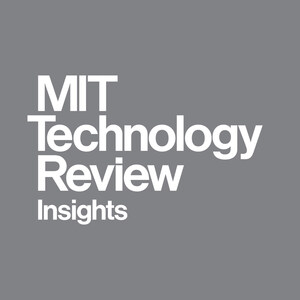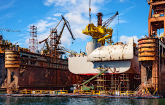CAMBRIDGE, Mass., Dec. 5, 2022 /PRNewswire/ -- Produced by MIT Technology Review Insights in association with Morgan Stanley, the Blue Technology Barometer 2022/23 (BTB) is the second annual comparative ranking of 66 countries and territories on the progress they are making toward sustainability by protecting the ocean environment, monitoring marine activity, contributing to technology innovation, and how well governments implement effective coastal policies.
Based on qualitative and quantitative research conducted between May 2022 and October 2022, the interactive index shows which countries are progressing the fastest in global efforts to slow the effects of climate change on the marine environment, protect waters from overfishing, and tackle the challenge of accumulating plastic in the ocean.
The key findings of the report are as follows:
- The United Kingdom keeps its blue leadership position for a second year. In the 2022/23 rankings, the United Kingdom retains its first-place rank (albeit with a slightly lower score than last year), thanks to its continued ocean sustainability efforts and forward motion to designate Highly Protected Marine Areas. Germany follows closely, as it did in the previous year with a strong advocacy of coastal marine conservation, which has also taken steps to hasten offshore wind energy development.
- Japan and the Netherlands are new entrants to the top 10. Overall scores for both were pulled up by their improvements in clean innovation, while the Netherlands (10th) also had solid numbers for policy and regulations. Japan (9th) replaced South Korea as the only country in the top 10 that's not a Western economy after the latter slipped to 11th place from 10th in 2021. This year, the top 10 blue technology leaders are still all mature economies.
- Nordic countries remain in the top 10. Thanks to their rich digital technology innovation ecosystems, Denmark (3rd), Finland (4th), Sweden (7th), and Norway (8th) create a significant blue leadership block. For Sweden, this has taken on an added geopolitical dimension, as it works to mitigate the Baltic Sea pollution from the recent sabotage of the Nord Stream 1 and 2 gas pipelines from Russia to Europe.
- There are large rankings swings among countries noted for making progress in ocean sustainability. For example, Romania jumped 11 places from 33rd to 22nd, due to improved sustainable fishing scores. On the other hand, two mature island economies dropped significantly in the rankings—Ireland fell 10 places (from 16th to 26th) and Taiwan nine places, from 18th to 27th. Taiwan's fishing industries are making less progress in instituting sustainable practices. In Ireland's case, 2021 saw no growth in offshore energy generation capabilities.
- The countries at the bottom of the index show slow and uneven progress toward protecting their maritime environments. Most of these are developing economies, which struggle to allocate resources to marine conservation, fail to invest consistently in renewable energy offshore, or are unable to uphold and maintain domestic—and internationally compliant—legal and policy infrastructure for maritime activity and sustainable fishing. Poor scores in the regulatory sphere forced down the ranking of several countries, notably Egypt (which fell from 37th to 50th place), Costa Rica (40th to 53rd place), and Israel (49th to 59th place).
"There is growing synergy between ocean- and land-based efforts to combat climate change," says Laurel Ruma, global editorial director, MIT Technology Review Insights. "However, challenges have also increased. Some efforts to improve and preserve ocean health have made slow progress, and the burdens of these failures fall disproportionately on poorer countries, many of which are striving to improve their own ocean sustainability efforts."
To view the research findings, visit the interactive page or click here to download the report.
For more information please contact: insights@technologyreview.com
Logo - https://mma.prnewswire.com/media/831545/MIT_Technology_Review_Insights_Logo.jpg






Share this article